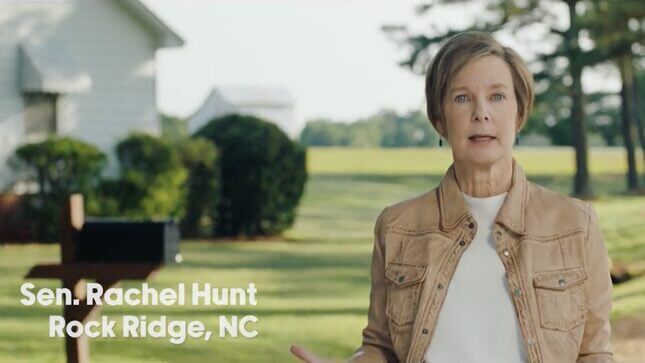Twitter, Supposed Free Speech Haven, Is Blocking Ads for ‘Mentioning Abortion Advocacy’
Twitter joins Spotify, Hulu, and other major media platforms that have censored promoted content supporting abortion.
AbortionPolitics

Since purchasing Twitter last year and pillaging two-thirds of its value, Elon Musk has prided himself on making the social platform a free speech haven—at least for transphobes, white nationalists, and terminally unfunny fans of his. But among the many predictable problems and double standards regarding the platform’s treatment of marginalized people and progressive causes, HuffPost reported on yet another on Thursday: Twitter is blocking political ads for merely “[mentioning] abortion advocacy,” as one employee put it in an email to a Democrat in North Carolina.
State Sen. Rachel Hunt (D) is running for lieutenant governor of North Carolina, and a large part of her campaign is pushing back on the state’s recently passed 12-week abortion ban. This week, Hunt told HuffPost she realized a new video ad in which she highlights her support for abortion rights and addresses the 12-week ban had been rejected by Twitter, which is refusing to promote the ad.
In an emailed explanation for this decision, an employee told Hunt’s campaign: “Ah yes, the mention of abortion advocacy is the issue here.” (Nothing says Elon Musk’s Twitter more than responding to a business matter with the diction equivalent of a fedora, ah yes.) The employee implied that there may soon be some change to the policy, telling Hunt’s campaign that Twitter might have “some good news to share on that front” in the next weeks. But the employee concluded, “For now, though, you still won’t be able to message around that topic.” (That change would certainly be in Twitter’s best interests, as its horrific content moderation standards have resulted in advertisers fleeing the site en masse.)
-

-

-

-

-

-

-

-

-

-

-

-

-

-

-

-

-

-

-

-

-

-

-

-

-

-

-

-

-

-

-

-

-

-

-

-

-

-

-

-








































